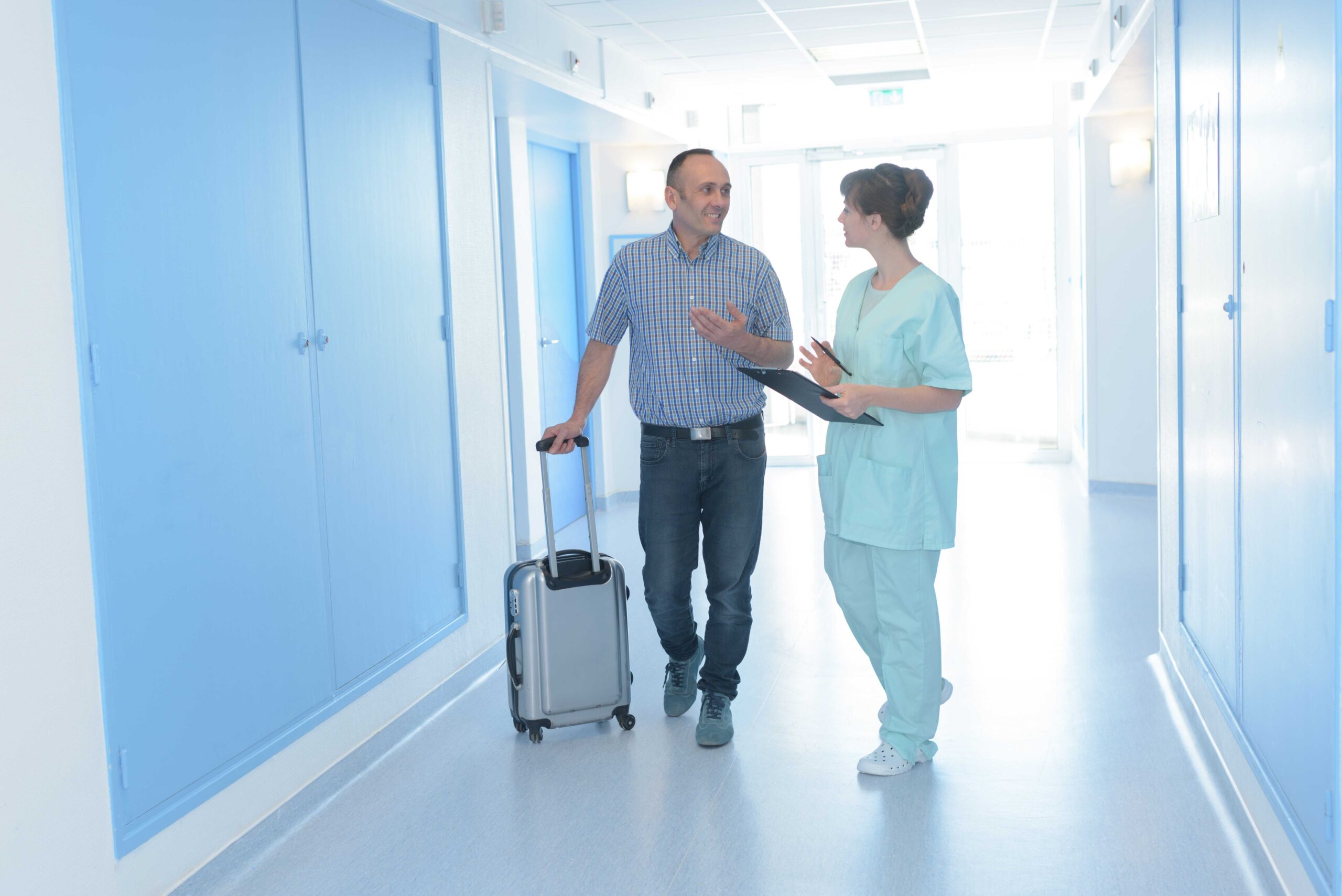Preparing for procedure
Presurgical Testing
Before your surgery, you will have an appointment for presurgical testing. The date, time, and location of your appointment will be communicated with you by our office. You can eat and take your usual medications the day of your appointment. During your appointment, you will meet with anesthesiology staff (doctors who will give you anesthesia during your surgery). We will review your medical history, and you will have tests, including an electrocardiogram (ECG) to check your heart rhythm, a chest x-ray, blood tests, and any other tests needed specifically for your case to prepare you optimally for the planned surgery. We will discuss the plan for your medications on the morning of your surgery.

For your visit, it will be important to bring the following:
- A list of all the medications you’re taking, including prescription and over-the-counter medications
- Results of any tests done outside of THP, such as a cardiac stress test, echocardiogram, or carotid doppler study.
- The name(s) and telephone number(s) of your doctor(s)
Important Other Information:
- You will also meet with a Wound, Ostomy, and Continence (WOC) Nurse if needed to plan for an ileal conduit if you are having bladder surgery. A WOC nurse is a nurse who specializes in caring for wounds, stomas, and other skin issues. . Even if there is a low probability that you will need a stoma, Dr. Feifer, may have your WOC nurse mark a site anyway. This is done in case the surgical plan changes based on findings during your surgery.
- Try to stay active and do some exercise every day. This will improve your post operative recovery
- Eat a healthy diet, and focus on loading your body with nutrient rich foods to help in your body’s recovery
- If you take aspirin or medication that contains aspirin, you may need to change your dose or stop taking it 7 days before your surgery. Please confirm this with our treating team
- Stop taking vitamin E, multivitamins, herbal remedies, and other dietary supplements at least one week before surgery
- Stop taking nonsteroidal anti-inflammatory drugs (NSAIDs) at least 3 days before surgery. If pain is an issue, we will substitute the NSAIDS with a safer alternative
- You will need to follow a liquid diet one day before your surgery.
- You may be required to do a bowel prep to clean out your intestines prior to surgery.
- While you’re on a liquid diet, don’t eat any solid foods, drink throughout the day, and make sure you get some carbohydrates in your liquids such as sports drinks or juices. Don’t drink sugar-free liquids unless you have diabetes and there is a well thought out plan designed for you.
- For people with diabetes, if you take insulin or another diabetic medication, you may need to change the dose. Make sure to check your blood sugar level often.
- Note the time of your surgery which will be communicated to you by our office, and arrive at the hospital on time.
- Get a good nights sleep prior to surgery
Do not eat anything after midnight the night before your surgery. This includes hard candy and gum.
Take your medications as instructed.
What to bring
- A list of all the medications you’re taking, including prescription and over-the-counter medications, patches, and creams.
- Your breathing device for sleep apnea (such as your CPAP device), if you have one.
- Your cell phone and charger.
- A case for your personal items (such as eyeglasses, hearing aid(s), dentures, prosthetic device(s), wig, and religious articles), if you have one.
Things to remember
- If you wear contact lenses, wear your glasses instead. Wearing contact lenses during surgery can damage your eyes.
- Don’t wear any metal objects. Remove all jewelry, including body piercings. The equipment used during your surgery can cause burns if it touches metal.
- Don’t put on any lotion, cream, deodorant, makeup, powder, perfume, or cologne.
- Leave valuable items (such as credit cards, jewelry, and your checkbook) at home.
- If you’re menstruating (have your monthly period), use a sanitary pad, not a tampon. You’ll get disposable underwear and a pad, if needed.

